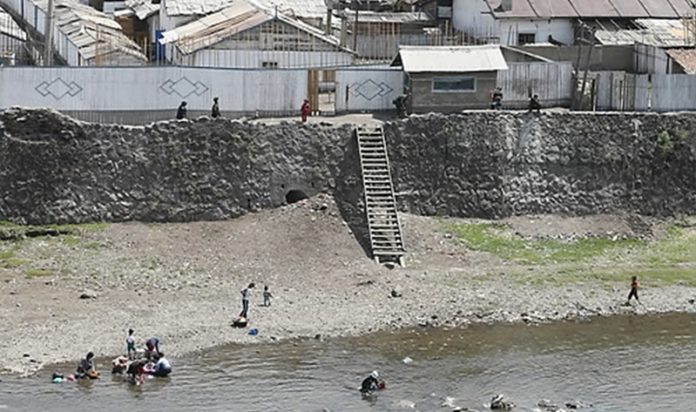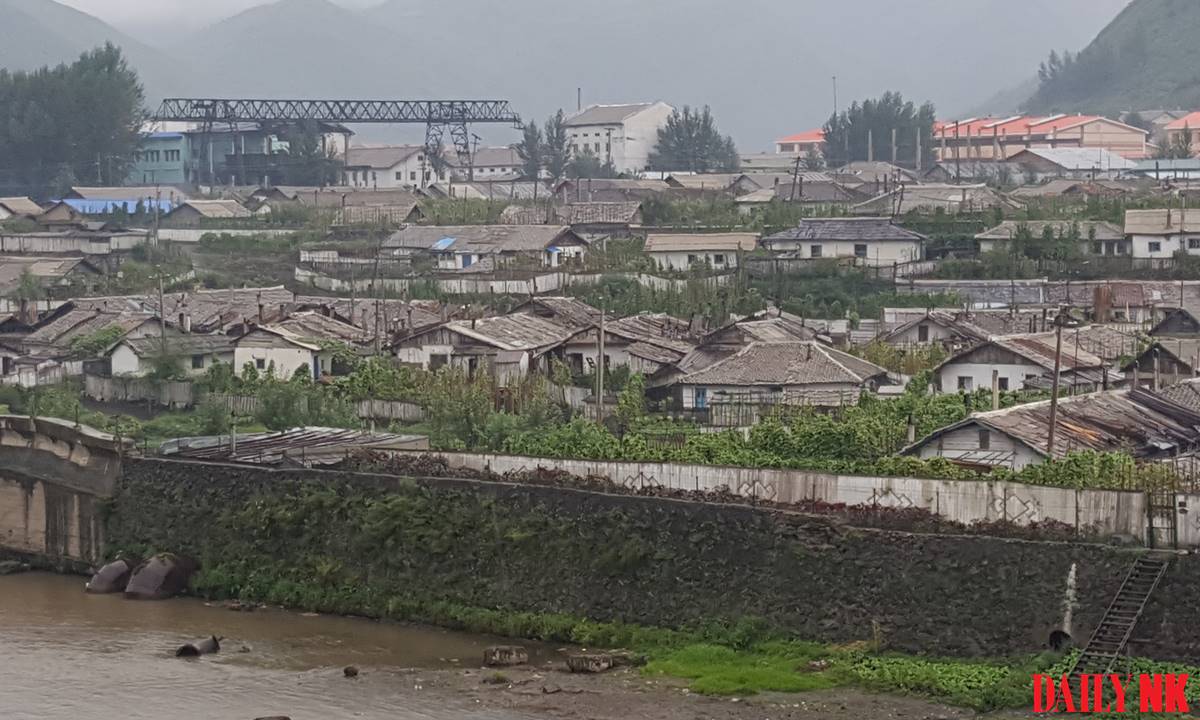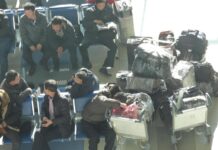The aftermath of the “Hyesan Incident” is having a major impact on the border patrol deployed in the city, along with the city’s residents. The authorities have disbanded a border patrol company connected to the smuggling case and have sent an entire regiment to South Hamgyong Province. Meanwhile, the authorities are expected to conduct a massive transfer of military units on the border to other areas of the country as part of efforts to eliminate smuggling conducted by border patrol officers and local residents.
A source in Yanggang Province told Daily NK on Thursday that early last week, the chairperson of Yanggang Province’s party committee, the commander of the Storm Corps (11th Corps), along with the commander of unit from the Seventh Corps deployed to the province, sent a proposal to the central government to go ahead with a transfer. “The proposal went straight to the Supreme Leader [Kim] and [Kim] issued the order [to go forward with the transfer] on Nov. 22.”
According to the source, who spoke on condition of anonymity, the proposal called the recent smuggling case the “Hyesan Incident” and said military personnel and civilians in the border region were working together to encourage all sorts of illegal activity, including smuggling, despite government efforts to enforce disease control measures. It also stated there was a need to transfer military units away from the border to break the chain of collusion before the Eighth Party Congress next year.

The source told Daily NK that a 10-point action plan was affixed to the proposal, the key point of which called for selectively transferring “outstanding personnel” from several units in the region. The reason given for this was that if the personnel of any single military organization enters the border region, the current state of corruption could continue.
Moreover, the commanders decided to include in the proposal that they wanted to receive a Korean People’s Army’s party committee decision about disbanding the border patrol company the ringleaders of the Hyesan Incident were affiliated with. Only the military’s party committee can issue such a decision, so the authors of the proposal essentially asked the central government to take the necessary steps to disband the company.
The proposal was sent straight to Kim Jong Un and the Central Committee issued a secret order in Kim’s name on Nov. 22, the source said.
The source said the order “entrusted the General Staff Department, General Political Bureau and [Enlisted] Rank Recruitment Department with selecting the various personnel to be transferred from South Hamgyong Province, South Pyongan Province, Nampo, and North Hwanghae Province.” The order also said that officials should “immediately disband the unit that had been notified by the Korean People’s Army Party Committee as being disbanded.”
Accordingly, the border guard company involved in the smuggling case in Hyesan was disbanded on the morning of Nov. 23, while the regiment the company was part of was transferred to Yonggwang County, South Hamgyong Province. Currently, only some members of the regiment’s command remain in Hyesan, where they are performing “transfer of duty”-related activities.
“A regiment in South Hamgyong Province was transferred up to Hyesan by train on Nov. 24, which led to a lock down at Yiyon Station station with no other trains allowed in or out,” said the source. “Later, members of the border patrol regiment in Hyesan were suddenly ordered to assemble and then brought to South Hamgyong Province on that same train. Since members of the regiment had to leave so suddenly, they left without collecting any of their personal items or money left at the homes of local residents.”
This massive transfer of personnel is having a major impact on local residents. In fact, the source said a woman in her late 40s who had engaged in smuggling with the border patrol “recently killed herself by self-immolation” when the border patrol personnel she worked with were sent to South Hamgyong Province. Evidently, their transfer to another province no longer gave her access to her smuggling routes, leaving her unable to collect her payments or goods.

Local residents who run shops that extended border patrol personnel credit or loans are also complaining of major losses as they can no longer get their money back. Moreover, residents are now moving to collect the debts and credit they have extended to soldiers based on rumors that a major transfer of personnel in the area is coming.
The source noted that Ri Pyong Chol, vice chairman of the Central Military Commission, recently went to Hyesan to receive a report on how Kim’s Nov. 22 order was being executed, and to convene a plenary session of the provincial party to discuss countermeasures and offer guidance.
“In the belief that simply transferring the military units along the border in Yanggang Province would not solve the problem, Ri reportedly said units along the entire [Sino-North Korean] border would be transferred [to other areas of North Korea], beginning with Yanggang Province,” the source said.
The source noted that locals are complaining about the government’s move to crackdown on smuggling on the border by replacing existing border patrol units with new units from the interior of the country. “I had no idea they’d go as far as [transferring personnel out of the area],” one said, while another complained, “[Transferring the personnel out] is the same as giving us a death sentence.”
Meanwhile, Ri reportedly said during his visit to Yanggang Province that the Workers’ Party’s ultimate goal was to ensure that not a single “fugitive” crosses the border. He stressed that the provincial party, law enforcement and security agencies should more effectively monitor and control local residents.
Ri also ordered the creation of a list of so-called “dangerous elements,” according to the source. The individuals on the list are to be closely watched all the time and face “legal punishments” if lighter punishments are ineffective.
“These ‘dangerous elements’ include people who use Chinese-made mobile phones, money transfer agents, smugglers, human traffickers and even the operators of motels,” said the source. “Motel owners were included on the list because they [largely] fail to report people without proper travel permits…so they can still make money, and they also serve as intermediaries for human traffickers.”

















